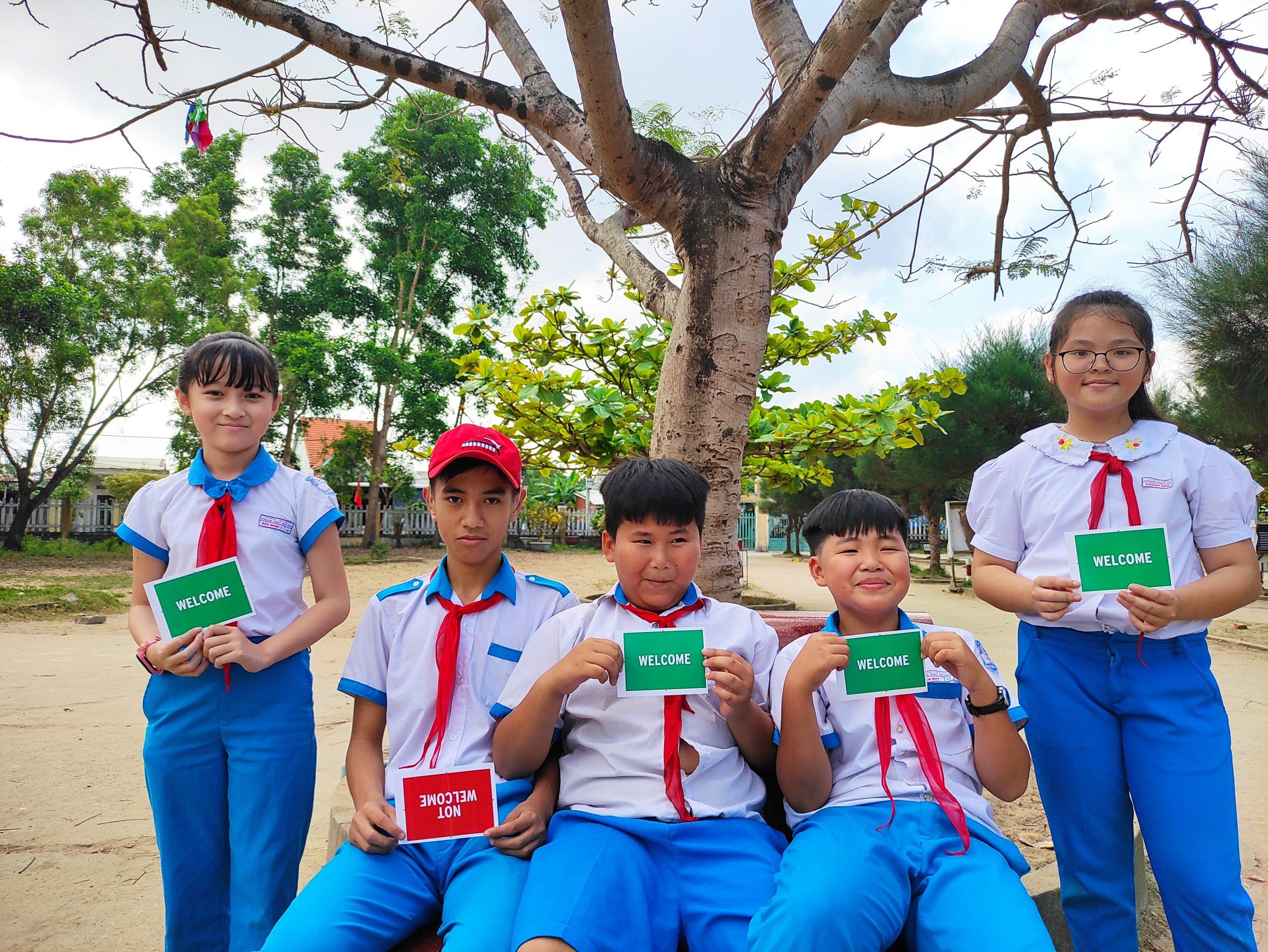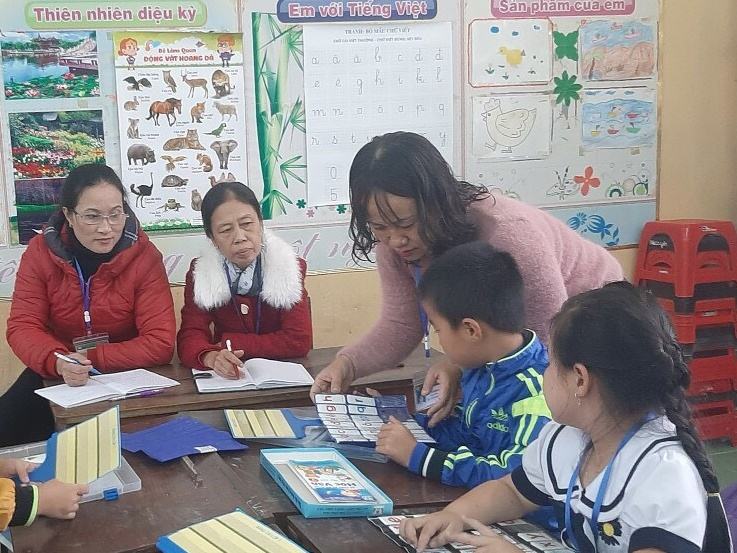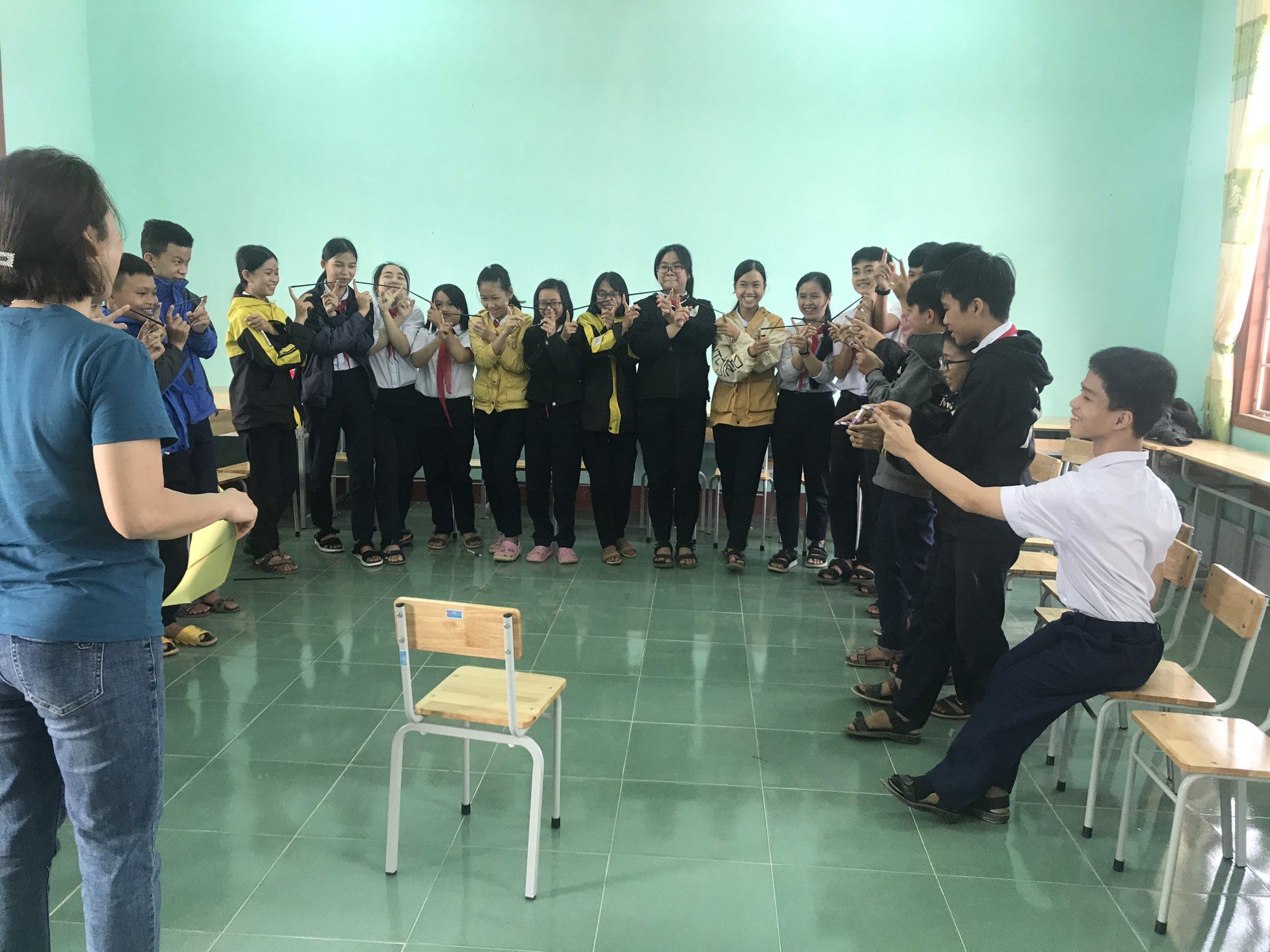In order to promote inclusive education in Vietnam, the Research Center for Inclusion (RCI) conducted the project “Increasing participation of children with disabilities in inclusive education” in three districts of Tan Lac (Hoa Binh province), Trieu Phong (Quang Tri province) and Dien Ban (Quang Nam province). In its first phase from 2017 to 2020, the project’s interventions at different levels of the education system have contributed to some of the positive changes in the life of children with disabilities and their families.

A learning activity for students with and without disabilities in project areas
Under the project, primary health check and learning ability assessment were conducted for 166 children with disabilities. After this assessment, children who had health problems were referred to hospitals at provincial level for treatment. 12 children with assistive device needs were provided with wheelchairs, hearing aids and glasses.
200 children with disabilities participated in social activities such as games, cultural performances, writing and drawing competitions organized by the project. 18 child to child support groups were established. Through mutual support, children without disabilities could learn about the challenges that their counterparts were facing. The attachment and development of close friendship between the two erased children’s complex about their impairment, increased their confidence and motivation to go to school and participate in school activities.

An experiential trip for children with disabilities and their parents
More than 250 teachers and school leaders have benefited from training courses, workshops and class observation. The training topics were inclusive education overview, disability identification, methods and skills in teaching children with disabilities and developing individual education plans. Sharing of trained knowledge were organized among teachers who participated and didn’t participate in trainings. They then applied what they learned upon specific case of student with disability.
Teachers also communicated with parents of their children more actively. In some schools in Quang Tri and Quang Nam, teachers had discussions with CWD’s parents when they started to develop plans for their children, or when there was any target that need to be reviewed for more appropriate with the child’s current situation and ability.

Class observation as part of the teachers’ knowledge sharing
The project renovated and rebuilt facilities including the toilet areas, ramp for wheelchairs and roofs from the classrooms to the toilet areas for nine primary schools. Classroom bookcases were provided to three primary schools in Quang Nam. Those disability-friendly constructions enabled children with disabilities to enjoy their school activities as their peers and highly appreciated by not only the students but also their parents and teachers.
This project was developed and implemented in cooperation with district departments of education and training and stakeholders in the locality, from primary schools in communes to provincial departments of education and training. The target schools also actively cooperate with the local government in the practice of rights and care for children CWD and their families.

Inclusive training in a mainstream school
With these support, children with disabilities in three project areas have grown healthier and become more confident to participate in school and class activities. Through interviews, most of the children responded that they liked going to school and liked their teachers, including those who transferred from special schools/centers to mainstream schools.
The results and impacts of the project will be important prerequisites for developing, adjusting and implementing the following stage in the most effective way.
